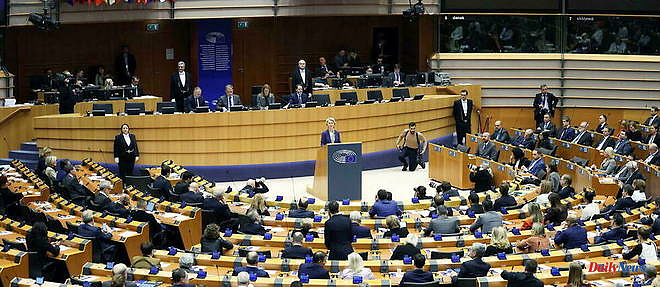Litigation cases have been piling up between Poland and its European partners in recent weeks. A new case illustrates this renewed tension: Poland blocked, this Friday morning, during the meeting of EU ambassadors, the so-called "post-Cotonou" trade and development agreement which should revitalize the relationship between Europe and 79 OACPS (Organization of African, Caribbean and Pacific States) countries. The consternation is all the greater among European diplomats as Poland has so far not raised any objections. Unanimity is required.
The blocking of the agreement with the OACPS is in addition to other contentious files such as that of the transit of Ukrainian wheat and the very difficult negotiations on the common purchase of ammunition for Ukraine. Here, France is pushing for a European localization of production when Poland wants to buy outside the EU.
The agreement with the OACPS was to extend the Cotonou agreement, signed in the year 2000, which expired in February 2020. Extended 4 times, the Cotonou agreement is supposed to expire in June 2023 if its successor, the post-Cotonou agreement, does not take over. If we stop there, from July 2023, there will be no more agreement. The EU-ACP Joint Assembly will no longer be able to meet…
In fact, the new agreement provides for two things: on the one hand, it allows a form of legal immigration of citizens of African, Caribbean and Pacific countries to the EU through visas and family reunification. But, in a specific component, it facilitates the return of migrants, including asylum seekers, to their countries of origin.
It took a lot of patience to overcome Hungarian reluctance by explaining to Budapest that it is in its interest to ratify it and that this agreement is balanced: on the one hand, legal, controlled migration, on the other, the removal of illegal immigrants. This corresponds, moreover, to the general philosophy of the European pact on migration and asylum in the process of being adopted by the institutions.
In short, we are talking about the pill and sex education. Not entirely inconsistent for a continent with galloping demography. But Poland sees in it implicit support for abortion, a taboo subject for Polish conservatives. So much so that the PiS fears that, by signing this partnership, it opens up the possibility of having an abortion imposed on it. This is obviously not the spirit of the post-Cotonou agreement.












